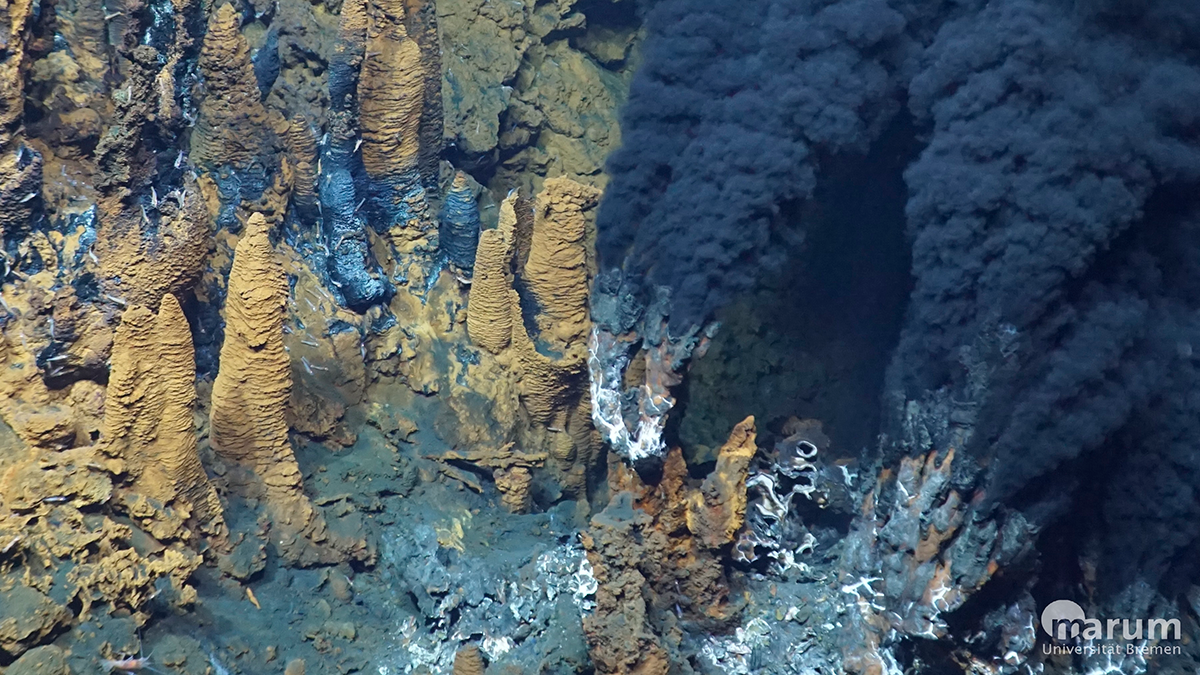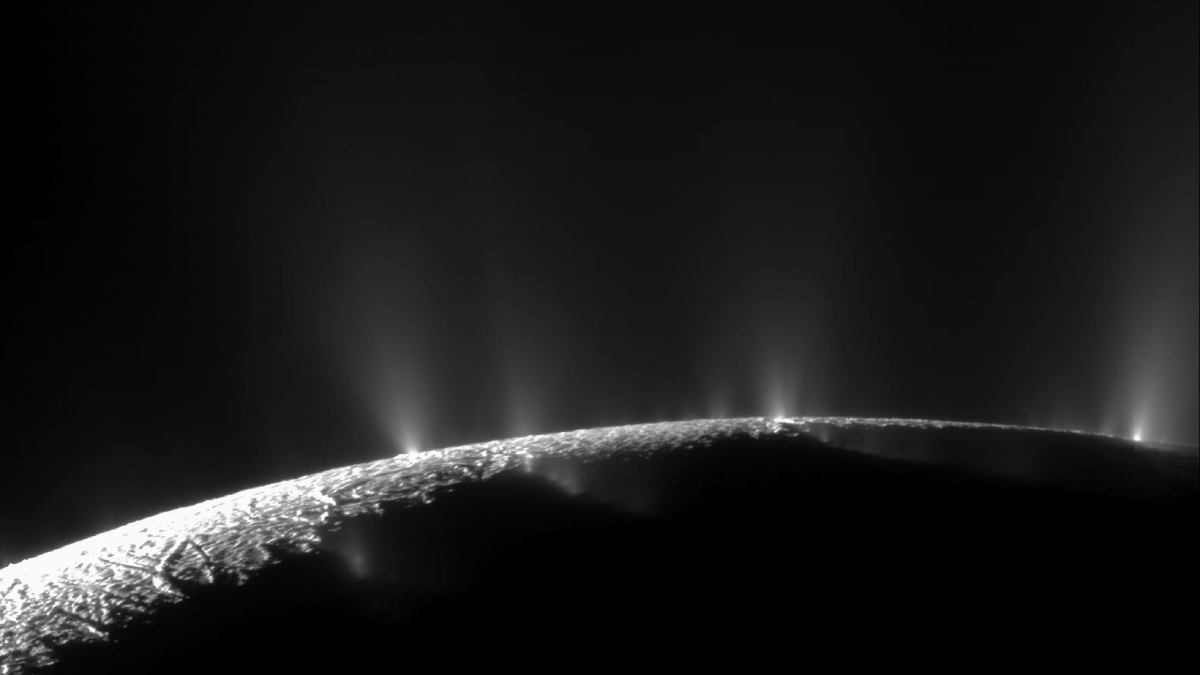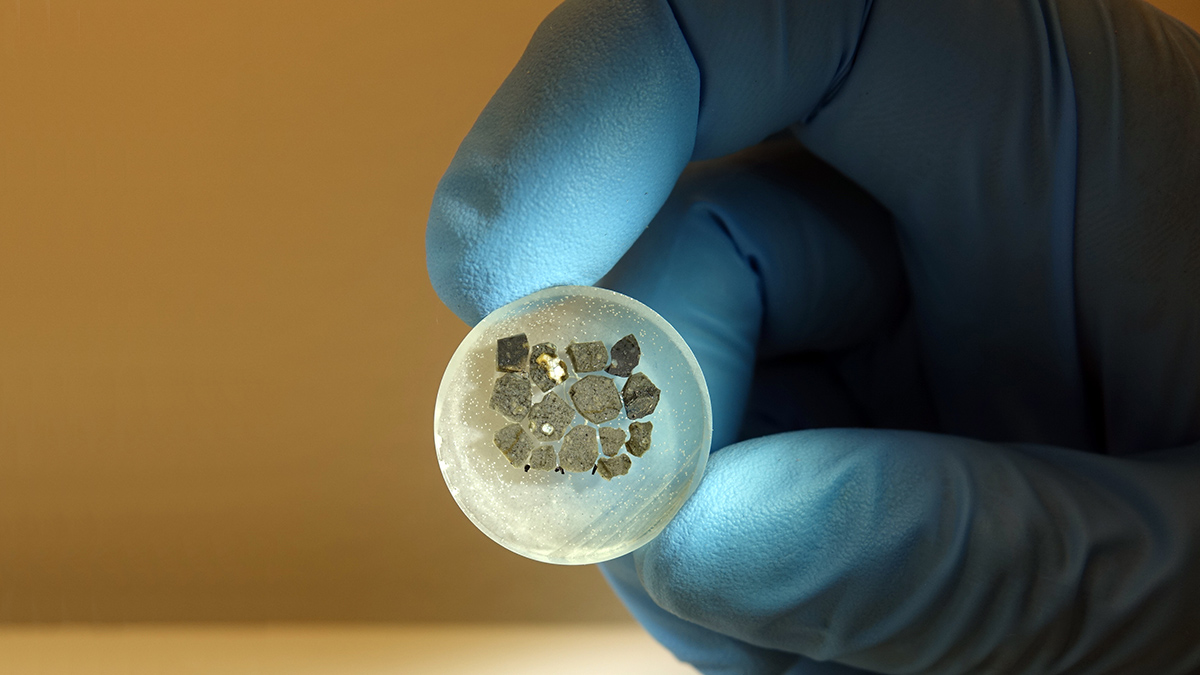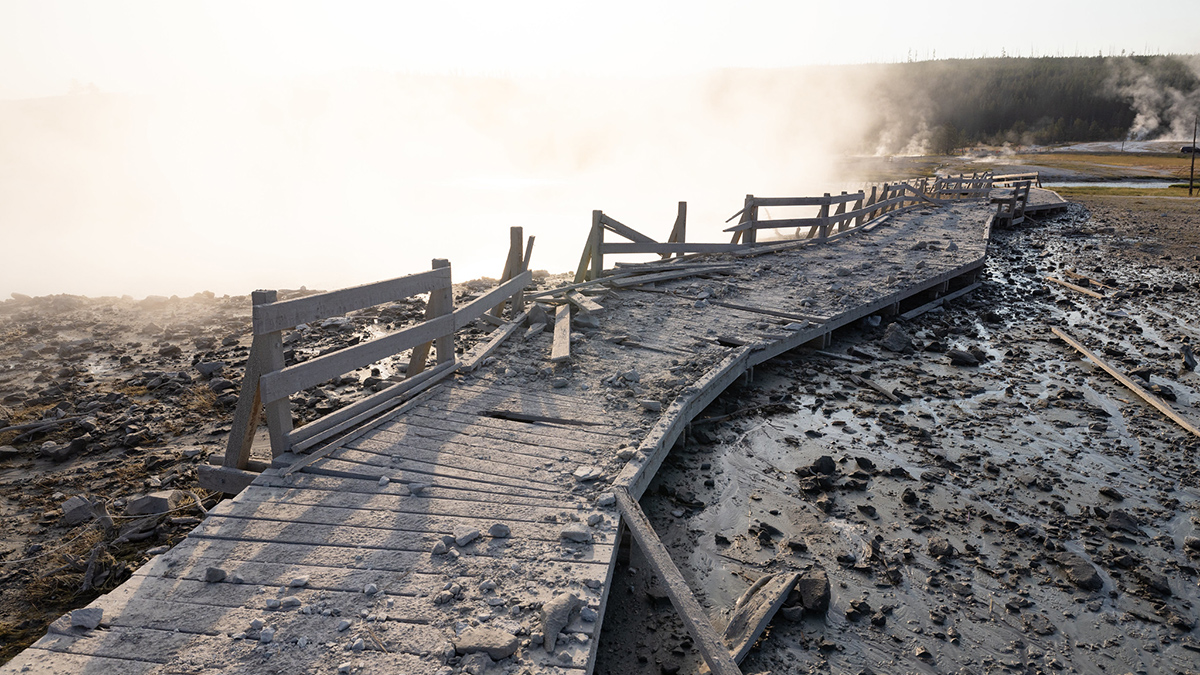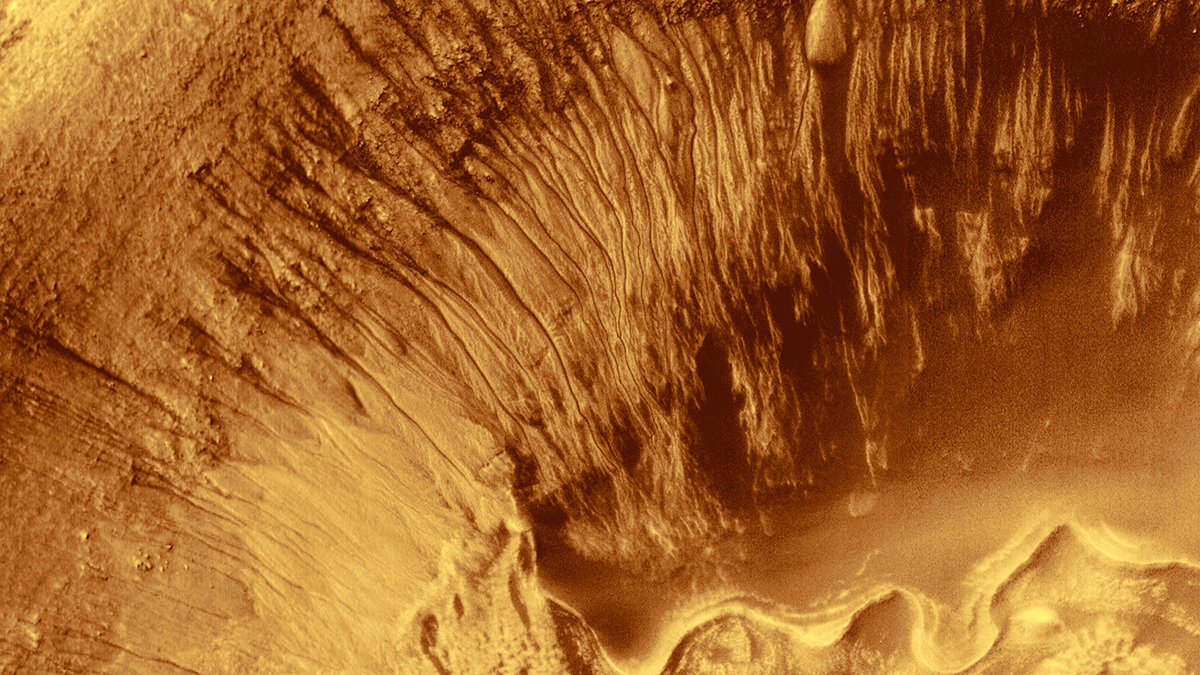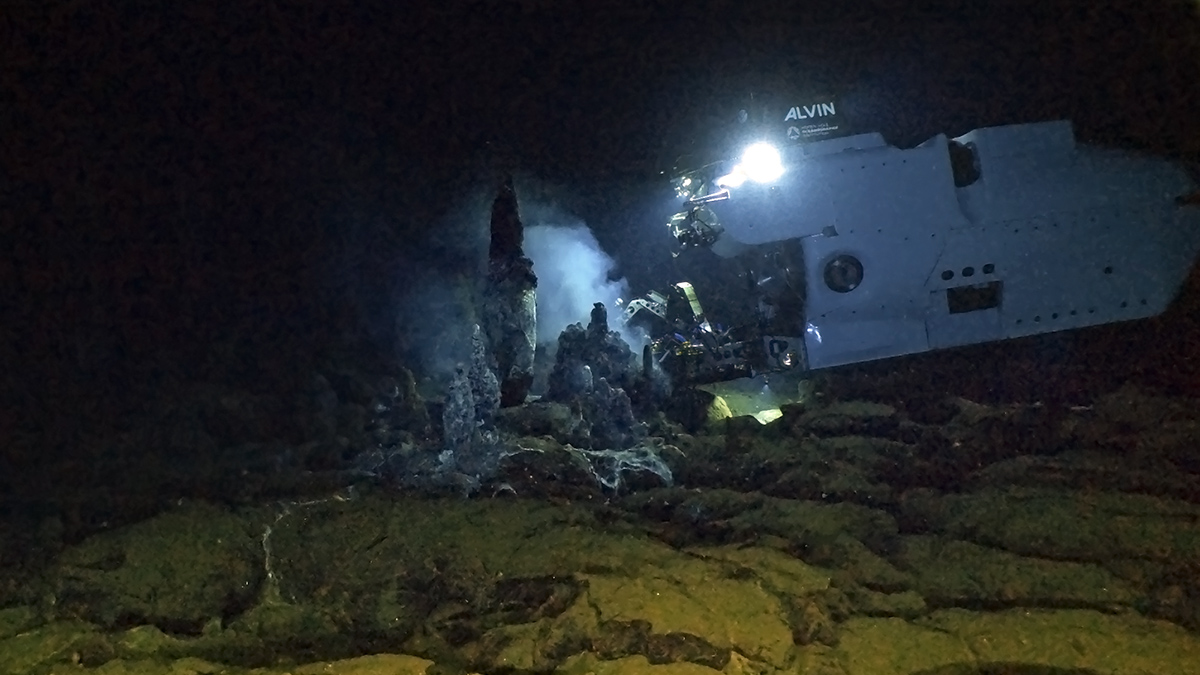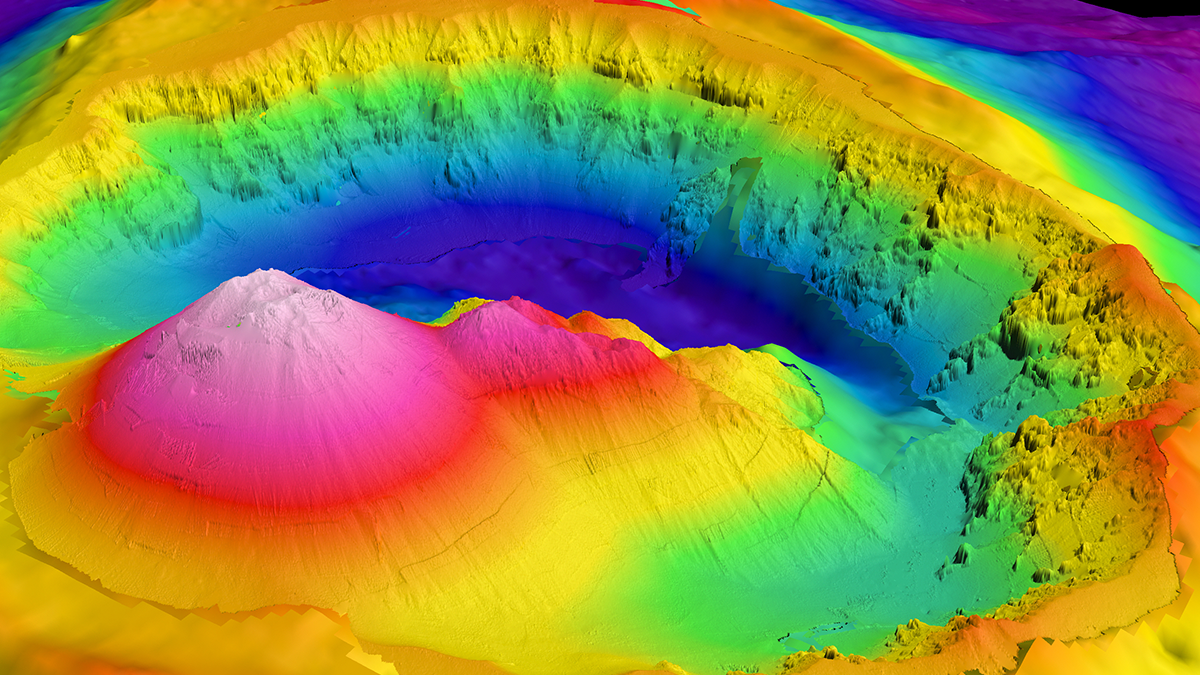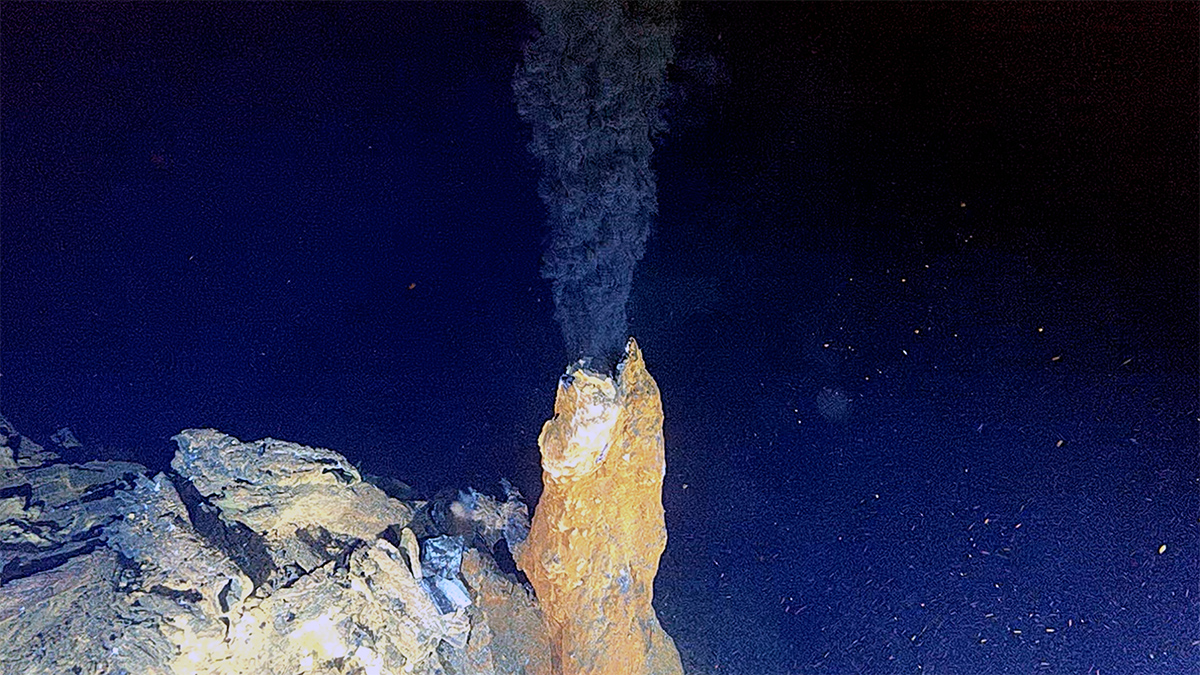From a gathering of scientists at a uniquely well-preserved section of ancient oceanic crust came a monograph investigating the latest in hydrothermal fluxes and seawater chemistry.
hydrothermal systems
Speedy Flyby Adds New Organics to Enceladus’s “Primordial Soup”
A new analysis of old Cassini data has also verified past detections of complex organics in Saturn’s E ring, strengthening the chemical ties between the ring and its progenitor.
A Flash, a Boom, a New Microbe Habitat
After an asteroid struck Finland long ago, microscopic life colonized the impact site within a few million years, new research reveals.
Hydrothermal Hazards on Display in Yellowstone National Park
Tourists and officials were startled by a hydrothermal explosion at Black Diamond Pool in July 2024. Geoscientists are working out how and why it occurred to better understand these hazardous events.
Geophysics Sheds Light on Early Martian Water and Habitability
A new study uses inversions of orbital gravity and magnetic field data to argue for the presence of ancient, long-lasting hydrothermal systems on Mars.
An Upgraded Alvin Puts New Ocean Depths Within Reach
The newly retooled submersible, which has already returned fascinating new findings from Earth’s watery depths, is opening more of the deep ocean to direct human exploration.
Imaging Magma from Afar
Reservoirs of magma and fluids in the crust create gravity anomalies detectable by altimetry, which can help find submarine volcanoes and provide key insights into their depth, shape and volume.
Arctic Hydrothermal Vents May Resemble Those on Enceladus
By studying hydrogen-rich vent sites on Earth, scientists could learn more about the hidden ocean of Saturn’s icy moon—one of our solar system’s likeliest candidates for harboring life beyond Earth.
Mid-Ocean Ridges Could Be Dispersing Thermophilic Bacteria
Scientists suggest that two strains of endospores located more than 4,000 kilometers away from one another originated in the same place: along the Mid-Atlantic Ridge.
Martian Meteorite Points to Ancient Hydrothermal Activity
The Red Planet had water—in the form of a hydrothermal system—4.45 billion years ago, new analyses of a Martian meteorite suggest.

